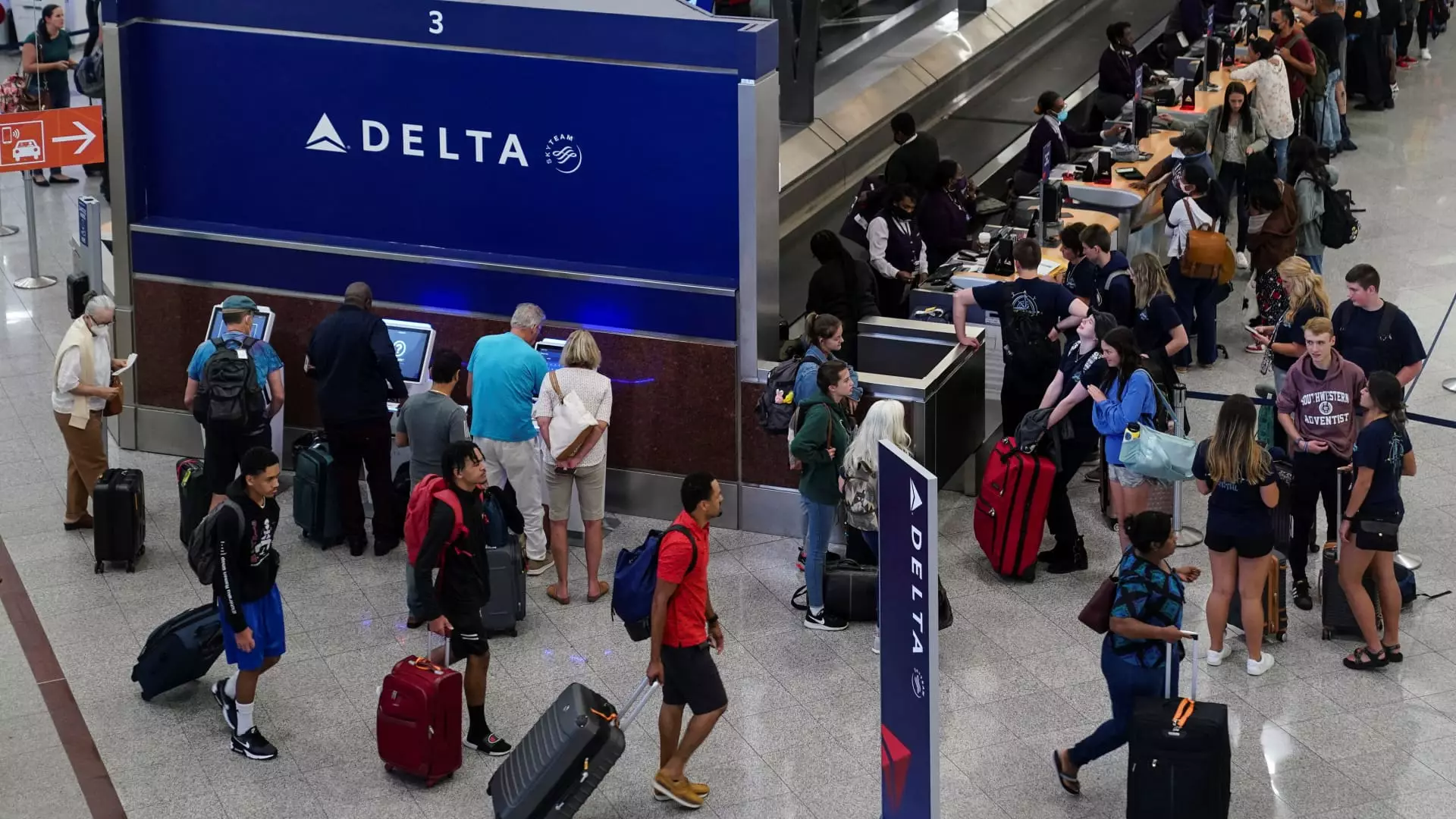Delta Air Lines has provided a glimmer of optimism in the airline sector by forecasting growth in sales and earnings as it looks ahead to 2025. The airline attributes its confidence to a resilient economy that continues to fuel strong travel demand and increasing credit card spending, particularly within the luxury market. This optimistic outlook aligns with analysts’ projections of a mid-single-digit percentage revenue growth in 2025, marking a significant opportunity for the airline to capitalize on increasing consumer trends.
As a leading player in the airline industry, Delta asserts that it will manage rising operational costs while maintaining competitive prices. The carrier anticipates an increase in costs in the low single-digit percentages, excluding fuel expenses, suggesting a calculated strategy to absorb wider economic pressures without detracting from profit margins. Such forecasting indicates Delta’s ability to navigate market dynamics while sustaining operational stability.
Delta’s continued success is heavily intertwined with its strategic focus on high-end travelers. The airline has leveraged its strong partnership with American Express to bolster revenue channels, targeting affluent consumers keen on premium offerings. A projected $7 billion in remuneration from American Express demonstrates their robust collaboration, with aspirations to reach $10 billion in the long term. This approach reflects Delta’s dedication to catering to high-spending segments and differentiating itself from competitors who may not concurrently focus their strategies on premium markets.
An interesting dynamic emerges in the evolving travel landscape; the demographic shift favoring millennials and Gen Z consumers marks a noteworthy change. These younger generations, characterized by their rising disposable incomes, are increasingly inclined to invest in premium travel experiences. This demographic shift, coupled with Delta’s commitment to enhancing its premium cabin offerings, positions the airline for sustained growth.
In a climate where several companies express caution, such as Target’s recent profit forecast reduction due to “deceleration in discretionary demand,” Delta’s positive outlook stands out. However, it faces stiff competition from rivals like United Airlines, which has successfully tapped into high-end traveler segments. While Delta’s stock has surged by 60% this year, surpassing the broader market, United Airlines leads with a remarkable 128% increase. This competitive landscape underscores the necessity for Delta to innovate and adapt to industry trends continuously.
Despite these rivalries, Delta’s revenue composition offers crucial insights into its success. With a staggering 57% of revenue generated from premium seats and loyalty programs, the airline has effectively shifted its focus away from traditional main cabin ticket sales. This strategic direction not only underscores the profitability of premium offerings but also signals a cultural shift within the airline industry, where high-margin revenue sources gain precedence.
Transforming Cabin Offerings
The transformation of cabin offerings over the years reflects an adaptive strategy to meet evolving consumer preferences. Delta aims to innovate further by providing alternative options for travelers across its seating classes, showcasing adaptability in a competitive marketplace. The airline’s president, Glen Hauenstein, highlighted the substantial transition in the purchasing behavior of first-class travelers, with over 70% of seats now paid for rather than being offered as complimentary upgrades. This critical shift indicates the demand for premium seating has fundamentally changed, encouraging Delta to reassess how it segments its service tiers.
Hauenstein’s comments regarding potential new ways to segment cabins signify a forward-thinking approach to meet diverse passenger needs. As airlines globally race to introduce more luxurious configurations, such as lie-flat seats, Delta seems well-positioned to continue evolving its fleet and developing targeted marketing strategies for affluent travelers.
In sum, Delta Air Lines occupies a privileged position in a dynamic travel industry landscape. By prioritizing premium offerings and strategically aligning its resources with economic trends, Delta envisions sustained growth in the coming years. However, as competitors continue to innovate and navigate the market challenges, firm adaptability and foresight will be essential for Delta to maintain its leading status in the airline industry. The path forward for Delta is not just about flying high; it’s about smartly navigating the complexities of consumer behavior and economic currents in an ever-evolving world.


Leave a Reply